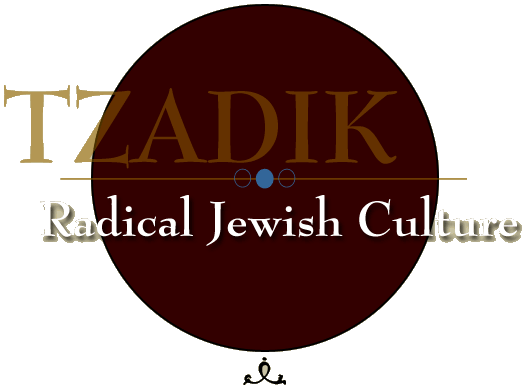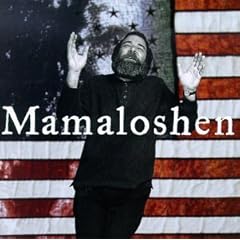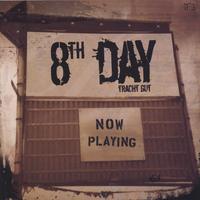Right?
Payplay.fm doesn't think so. They're an indie music download site with (today) 351 albums labeled 'Judaica.' Many are one's I'm familiar with or have downloaded through eMusic. But there looks to be a lot of additional albums. Payplay got it's start selling indie music in the fairly useless Windows Media (WMA) format, but has just switched to selling iPod friendly MP3 files for .88 cents. They also promise a (relatively) high payment to the artists (compared to iTunes).
Now I know what to do after my monthly eMusic binge. I'll just have to keep my self to one album a month. Or two. sigh.
Here are some PayPlay 'Judaica' albums that caught my eye:
 Sista Warrior and the Shakespear's "Stop the Suicied Bomber's" "Award winner Sista Warrior, presents the pristine fusion of the sounds of Deep Roots Reggae and Jewish Ghetto-Life lyrics. This mystical music started a totally original genre in the '80s. The beat is alluringly danceable, the words profoundly spiritual."
Sista Warrior and the Shakespear's "Stop the Suicied Bomber's" "Award winner Sista Warrior, presents the pristine fusion of the sounds of Deep Roots Reggae and Jewish Ghetto-Life lyrics. This mystical music started a totally original genre in the '80s. The beat is alluringly danceable, the words profoundly spiritual."  Judy Caplan Ginsburg's "Amazing Songs for Amazing Jewish Kids" "Amazing Songs For Amazing Jewish Kids by multi-award winning singer/songwriter, Judy Caplan Ginsburgh, features 16 terrific songs, mostly in English, that teach basic Hebrew, holidays and values. Featured are a number of sought-after songs that have never been released previously on a professional recording -- Dean Friedman's "In My Sukkah", Josh Miller's "Tree Song", Steve Dropkin's "Lulav Shake" and Judy's new "Shema Lullaby" to name a few."
Judy Caplan Ginsburg's "Amazing Songs for Amazing Jewish Kids" "Amazing Songs For Amazing Jewish Kids by multi-award winning singer/songwriter, Judy Caplan Ginsburgh, features 16 terrific songs, mostly in English, that teach basic Hebrew, holidays and values. Featured are a number of sought-after songs that have never been released previously on a professional recording -- Dean Friedman's "In My Sukkah", Josh Miller's "Tree Song", Steve Dropkin's "Lulav Shake" and Judy's new "Shema Lullaby" to name a few." Shlock Rock's "Jewish Pride" "Lenny Solomon is the head of a Jewish Rock and Roll Band called Shlock Rock. He has released 25 CD's. Ten original, 10 parody and 5 Children's. The mission of Shlock Rock is to spread Jewish Pride, Identity and Awareness to the World Jewish Community. In 1993 Shlock Rock became the only Jewish Rock Group to get a question in the Trivial Pursuit game. Jewish Pride is the first original album of the ten that Lenny Solomon and Shlock Rock has recorded."
Shlock Rock's "Jewish Pride" "Lenny Solomon is the head of a Jewish Rock and Roll Band called Shlock Rock. He has released 25 CD's. Ten original, 10 parody and 5 Children's. The mission of Shlock Rock is to spread Jewish Pride, Identity and Awareness to the World Jewish Community. In 1993 Shlock Rock became the only Jewish Rock Group to get a question in the Trivial Pursuit game. Jewish Pride is the first original album of the ten that Lenny Solomon and Shlock Rock has recorded." Vocolot's 'Behold' "Vocolot brings a joyous fusion of folk, jazz and cantorial vocal traditions into the contemporary a cappella world. They sing in English, Hebrew, Ladino, Yiddish, and Arabic, blending lush harmonies, soaring melodies and global percussion in original works and new renderings of ancient songs and texts. Vocolot's music, rooted in universal heart, social conscience and Jewish soul, communicates a powerful vision of world peace and reconciliation."
Vocolot's 'Behold' "Vocolot brings a joyous fusion of folk, jazz and cantorial vocal traditions into the contemporary a cappella world. They sing in English, Hebrew, Ladino, Yiddish, and Arabic, blending lush harmonies, soaring melodies and global percussion in original works and new renderings of ancient songs and texts. Vocolot's music, rooted in universal heart, social conscience and Jewish soul, communicates a powerful vision of world peace and reconciliation." Hat tip to BoingBoing for the pointer to Payplay.fm





















